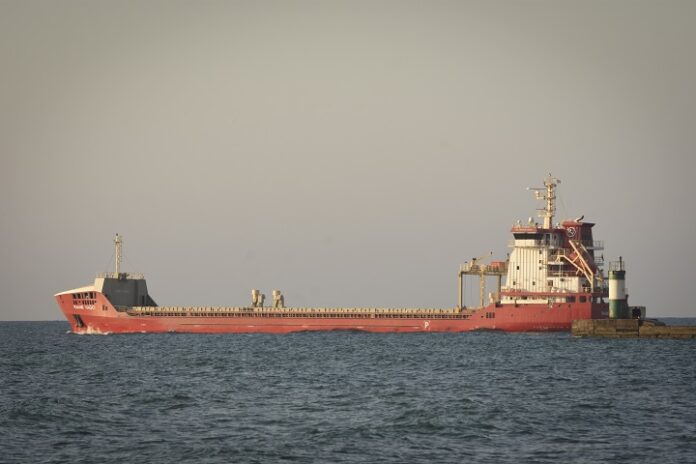Top Russian and UN officials held talks in Switzerland on Friday to try to iron out the extension of a deal allowing Ukrainian grain shipments and Russian food and fertilizer exports, with just over a week left before the wartime agreement meant to ease a global food crisis is set to expire.
UN humanitarian chief Martin Griffiths and UN trade chief Rebeca Grynspan, who has been in charge of the Russian side of the agreement, were meeting in Geneva with a Russian team led by Deputy Foreign Minister Sergey Vershinin.
“This discussion, it is hoped, should advance progress made in facilitating the unimpeded export of food and fertilizers originating from the Russian Federation to the global markets,” UN Geneva spokeswoman Alessandra Vellucci told reporters.
The deal is critical because Ukraine and Russia are major suppliers of wheat, barley, sunflower oil and other food, especially to parts of Africa, the Middle East and Asia where many people are already going hungry and food prices have surged. A failure to renew the wartime agreement has raised fears that a global food crisis would get worse.
1:05
NATO chief praises Turkey for negotiating Ukrainian grain deal
UN officials say the meeting will focus on “full implementation” of two separate agreements signed with Russia and Ukraine in Istanbul on July 22. Russia briefly suspended its participation in the deal two weeks ago, alleging a Ukrainian drone attack on its Black Sea fleet in Crimea.
Trending Now
‘Parody’ Doug Ford account verified on Twitter
BC Children’s Hospital diagnoses first person in the world with rare gene mutation
Russian authorities have said they are dissatisfied with the implementation of the accord and that they haven’t yet decided whether to extend the agreement brokered by the UN and Turkey after it is set to expire on Nov. 18.
There are no U.S. or European Union sanctions on food and fertilizer shipments, but Russian diplomats have cited problems getting financing and insurance for ships and finding ports where Russian vessels can dock.
“We need to resolve a number of issues related to the well-known part of the so-called grain deal that concerns us,” Kremlin spokesperson Dmitry Peskov told reporters. “Here, there is a mutual understanding on the part of our counterparts in the UN. Therefore, work is underway in this direction.”
Grynspan, who heads the UN Conference on Trade and Development, told the Security Council last week that Ukraine and Russia provide around 30 per cent of the world’s exported wheat and barley, 20 per cent of its corn, and over 50 per cent of its sunflower oil. Russia is also the world’s largest exporter of fertilizers, accounting for 15 per cent share of global exports.
2:18
‘The world gets a little bit harder’: Inflation cools slightly, high food prices eat at Canadians’ bottom line
Ukrainian grain shipments from the Black Sea ports have topped 10 million metric tons, the UN has said, and an end to the deal could have a ripple effect on food prices, availability and security in many parts of the world.
“Nobody, I think, wants to see that there is a termination of the deal. I think the situation would be really difficult, and the implications would be very serious,” said Boubaker Ben Belhassen, who heads the trade and markets division of the UN’s Food and Agricultural Organization.
“In the short term, certainly prices will have to respond and they will increase, especially, for example, for wheat, for maize, and also for sunflower seed oil,” he told reporters during a UN briefing Friday.
© 2022 The Canadian Press



